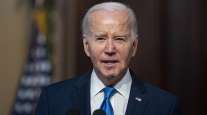NTTC Asks LaHood to Halt Rulemaking On Wetlines Procedures, Tanker Design
This story appears in the Oct. 10 print edition of Transport Topics.
The National Tank Truck Carriers has asked the U.S. transportation secretary to stop the rulemaking process on two cargo-tank regulations it said are not needed and “would actually harm the safe transportation of hazardous materials.”
The regulations being considered by the Pipeline and Hazardous Materials Safety Administration would prohibit the transportation of flammable liquids in unprotected cargo tank lines, also known as wetlines, and defer cargo tanker design standards to private organizations.
“We would very much appreciate your review of [the proposals] and do believe that these are two regulatory proposals that meet the president’s criteria for regulations that could be eliminated with no negative impact on safety,” NTTC President John Conley wrote in a Sept. 15 letter to Ray LaHood that was released publicly last week.
Conley told Transport Topics, “I’m looking for him to give the political support to that agency to do what I suspect they know is the right thing.”
The wetlines regulation, proposed in January, has been criticized by trucking as overly burdensome and costly.
Barbara Windsor, chairman of American Trucking Associations, said in a congressional hearing in April the regulation would be more dangerous than the problem it is designed to solve (4-18, p. 2).
PHMSA, which accepted public comments through late April, is expected to issue its final rule on May 11, according the Department of Transportation’s latest report on rulemakings.
LaHood will respond directly to the letter soon, DOT spokeswoman Olivia Alair said. A PHMSA spokes-man did not respond to a request for comment by press time.
At the April hearing, Rep. Bill Shuster (R-Pa.), chairman of the subcommittee that oversees hazardous materials safety, agreed with Windsor that PHMSA’s proposal amounted to “regulatory overreach.”
Shuster and Rep. Corrine Brown (D-Fla.) both have urged PHMSA Administrator Cynthia Quarterman to drop the rulemaking, Conley noted in his letter.
Eight people had been injured be-tween 1999 and 2009 due to wetlines, making the chances of being injured because of wetlines 1 in 30 million, Shuster said, citing DOT data.
Shuster’s position on the regulation has not changed since that hearing, subcommittee spokesman Justin Harclerode told TT last week.
The second PHMSA proposal involves a push by the American Society of Mechanical Engineers and the National Board of Boiler and Pressure Vessel Inspectors to incorporate their standards for design, construction, maintenance and certification of tank trucks as federal regulations.
Opponents of the proposal have said it would be unfair to require carriers to attend those groups’ meetings or purchase the standards for about $600 in order to see them (1-24, p. 2).
“Neither of these regulations were actually initiated by your agency for safety reasons, but rather were the result in one case from intense congressional pressure and in the other in response to petitions from an industry group that would financially benefit tremendously if its petitions are granted,” Conley wrote to LaHood.
Conley’s letter was prompted by President Obama’s speech to Congress in September, in which he expressed his desire to revise regulations that “put an unnecessary burden on businesses at a time when they can at least afford it,” Conley said.



